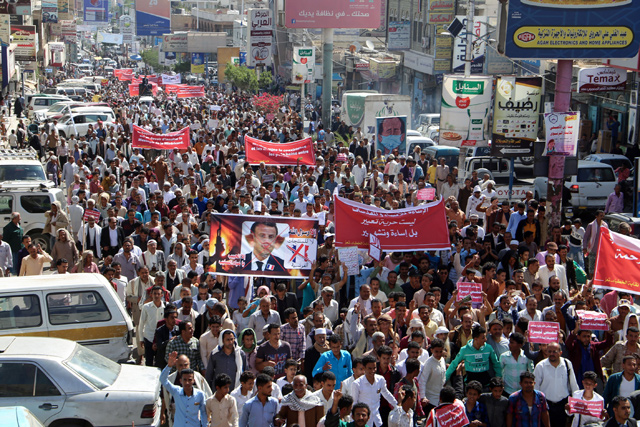PARIS — President Emmanuel Macron said that he could understand if Muslims were shocked by cartoons of Prophet Mohammed, as French authorities on Saturday sought to ascertain if a young Tunisian suspected of killing three people in a knife rampage inside a Nice church had outside help.
France is on edge after the republication in early September of cartoons of Prophet Mohammed by the Charlie Hebdo weekly, which was followed by an attack outside its former offices, the beheading of a teacher and now the attack in Nice.
Macron sparked protests in the Muslim world after the murder earlier this month of teacher Samuel Paty — who had shown his class a cartoon of Mohammed — by saying France would never renounce its right to caricature.
But in an apparent bid to reach out to Muslims, Macron gave a long interview setting out his vision to Qatar-based TV channel Al-Jazeera, seeking to strike a softer tone.
"I can understand that people could be shocked by the caricatures but I will never accept that violence can be justified," he said.
"I consider it our duty to protect our freedoms and our rights," he added.
France is still reeling from the latest attack in Nice which Macron has already described as “Islamist” terror.
Brahim Issaoui, 21, only arrived in Europe from Tunisia last month and, according to prosecutors, killed the sexton, a Brazilian woman and a French woman in the attack in the Notre-Dame Basilica on Thursday morning.
The attacker cut the throat of Nadine Devillers, 60, and the sexton Vincent Loques, 55. A Brazilian mother, Simone Barreto Silva, who was stabbed several times, took refuge in a nearby restaurant but died of her wounds there.
Issaoui was shot by police multiple times and is currently in a grave condition in hospital. Investigators have been unable to question him and his precise motivations remain unclear.
“It is still too early to say if there were others complicit, what his motivations were in coming to France and when this idea took root in him,” said a source close to the inquiry who asked not to be named.
Investigators believe Issaoui arrived illegally in Europe on Italy’s Mediterranean island of Lampedusa on September 20. He then arrived at the mainland Italian port of Bari on October 9 before coming to Nice just one or two days before the attack.
French police are currently holding three people for questioning in the investigation, which is focusing on two telephones found on the suspect after the attack.
A first man, 47, was detained on Thursday evening after being seen next to the attacker on surveillance footage the day before the attack.
The second individual, suspected of contacting Issaoui the day before the attack, was held on Friday.
Police said Saturday a third man, aged 33, was arrested after being present when the home of the second suspect was raided.
The attack came with France still in shock over the October 16 beheading of teacher Paty by a suspected Islamist radical from Russia’s region of Chechnya.
The teacher had shown a class a cartoon of Prophet Mohammed in the wake of the controversy generated by the reprinting by satirical magazine Charlie Hebdo of the caricatures to mark the beginning of the trial of suspects over the massacre of its staff in January 2015.
Even before that attack, Macron had promised a tough new campaign against Islamist radicalism which had aroused controversy and condemnation from Muslims around the world.
Protests erupted Friday in Afghanistan, Pakistan, Bangladesh, Mali, Mauritania and Lebanon, the latest in a string of mass rallies denouncing France.
Indonesian President Joko Widodo on Saturday “strongly condemned” Macron’s defence of the right to publish such cartoons.
Foreign Minister Jean-Yves Le Drian warned that French citizens face a security risk “wherever they are” in the wake of the attack, saying alerts had been sent to all French nationals abroad.
In Issaoui’s hometown of Sfax in central Tunisia, his family told AFP they struggled to believe he had carried out the attack but relatives said he had turned to religion and isolated himself in the past two years.
